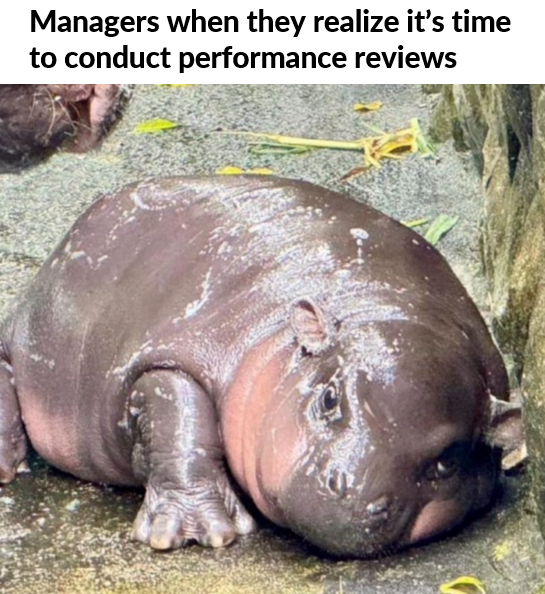Multifamily Blogs
Performance reviews are painful. 11 tips to make them better
Performance reviews are painful. 11 tips to make them better
It's getting to be that time of year when managers are asked to conduct performance reviews with their direct reports. Let's face it; for many leaders and employees alike, the performance review is a dreaded activity. Here are just a few reasons why people despise them:
- It's awkward. Without proper training, managers often don't know what to say in a performance review, or how to say it. Their lack of confidence in their own skills makes the meeting extra uncomfortable.
- It's scary. Many associates approach the performance review meeting like a kid being sent to the principal's office, fearful for the feedback that's coming—even if they are strong performers. There's something about the ritual that is frightening and stressful.
- It's highly subjective. Many organizations lack clearly defined performance standards, which means measuring performance is hard to do. As a result, team members can feel unfairly judged.
- It's a time waster. Employees and managers alike may view performance reviews as busy work unless the organization can make a clear connection between individual performance and company success.
These objections are all valid and should be considered as you approach performance review season in your organization. Here are my recommendations for making the process less painful and more impactful for you and your team.
1. DO train managers on how to conduct these conversations. Make it a habit to kick off each performance review season with a refresher course for all who will lead these discussions. Ensure expectations are clear, discuss how to deliver constructive feedback and practice in advance. My favorite resource for boosting skills in this area is the book Crucial Conversations: Tools for Talking When Stakes are High, Third Edition, by Grenny, Patterson, McMillan, Switzler, and Gregory.
2. DON'T limit feedback conversations to once or twice per year. Leaders should be offering feedback all the time, including in the moment and at regular one-on-one meetings with each person they supervise. Unfortunately, this doesn't happen in every workplace. According to Swift Bunny's Mid-Year 2024 Rental Housing Employees Report, 1 in 4 associates does not receive timely feedback on their work performance. Connecting regularly improves communication and trust, provides coaching opportunities, and takes the fear out of the performance review meeting. Nothing shared in a performance review should come as a surprise to your employee.
3. DO set performance goals and expectations at the beginning of the year or at the time of hire if the individual joins mid-year. You simply can't measure an individual's performance unless you have metrics by which to evaluate them. Ensure that your expectations are widely known and the same for all employees. Some organizations use various Key Performance Indicators (KPIs) in the performance review process.
4. DO explain how each employee's position, and each department, fit into the company's overall strategy. The performance review conversation is an ideal time to connect their efforts to the big picture and help associates see the results of their work. For example, calculate the fiscal impact of accomplishments such as improved occupancy, reduced resident turnover, or less time needed to prepare an apartment for move-in.
5. DO simplify the performance review process. There's no need for elaborate scoring and ranking or a 17-page form. Keep it simple and connect their performance to your KPIs.
6. DON'T pit employees against each other. Feedback should be individual. Avoid comparing one team member with another or using any sort of ranking. Keep this rule in mind: it IS appropriate to compare their performance to your standards; it is NOT appropriate to compare their performance to their colleagues'.
7. DO solicit feedback from employees as part of the process. The performance review meeting should be a dialogue, not a monologue (or, worse yet, an interrogation). Build in opportunities for your associates to share their perspectives and offer feedback on the workplace. Some organizations ask employees to complete self-assessments in advance; it's a great technique for giving them a voice.
8. DON'T ignore employees who you don't regularly see. Everyone deserves feedback, whether they work across the hall or across the country from you. Holding your performance review meetings in person is ideal, but these meetings can easily happen via phone call or video conference if needed. Minimize other distractions so all parties can concentrate on the important conversation at hand.
9. DO be sensitive to 'recency bias,' which results in basing a review on most recent performance. Instead, consult various sources of performance management documentation so you can offer feedback for the entire review period. Your employee deserves your attention on their total effort, not just what they did yesterday or last week.
10. DON'T discuss compensation during reviews. Instead, schedule a separate compensation review meeting. Compensation is such an important and charged topic that if your employee knows that information about their raise or bonus is coming at the end of the performance review, they may be unlikely to hear anything else. Better to divide and conquer and give both topics their due.
11. DO end on optimism to encourage employees to feel good about their future with the company. When conducted effectively, performance reviews can help to build satisfaction, loyalty, and tenure. That's good for the associate, the manager, and the organization.



